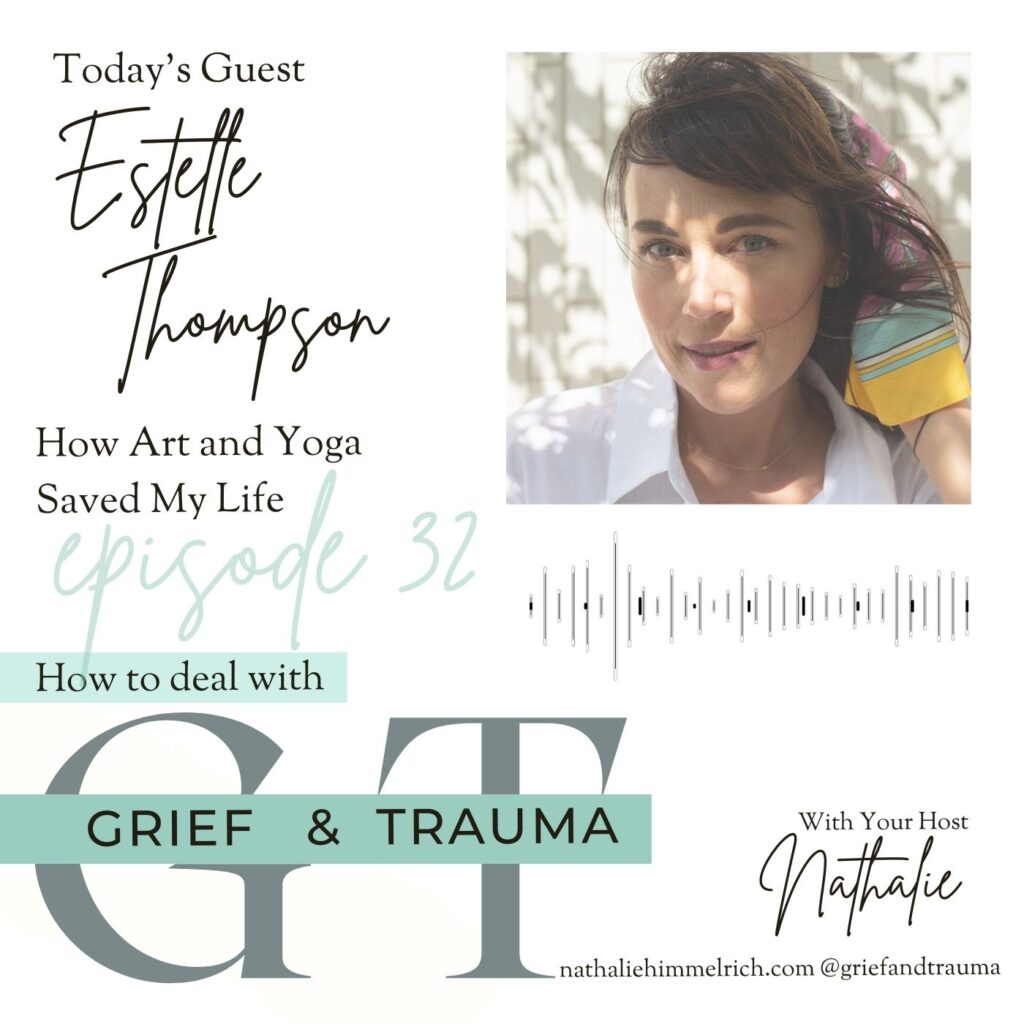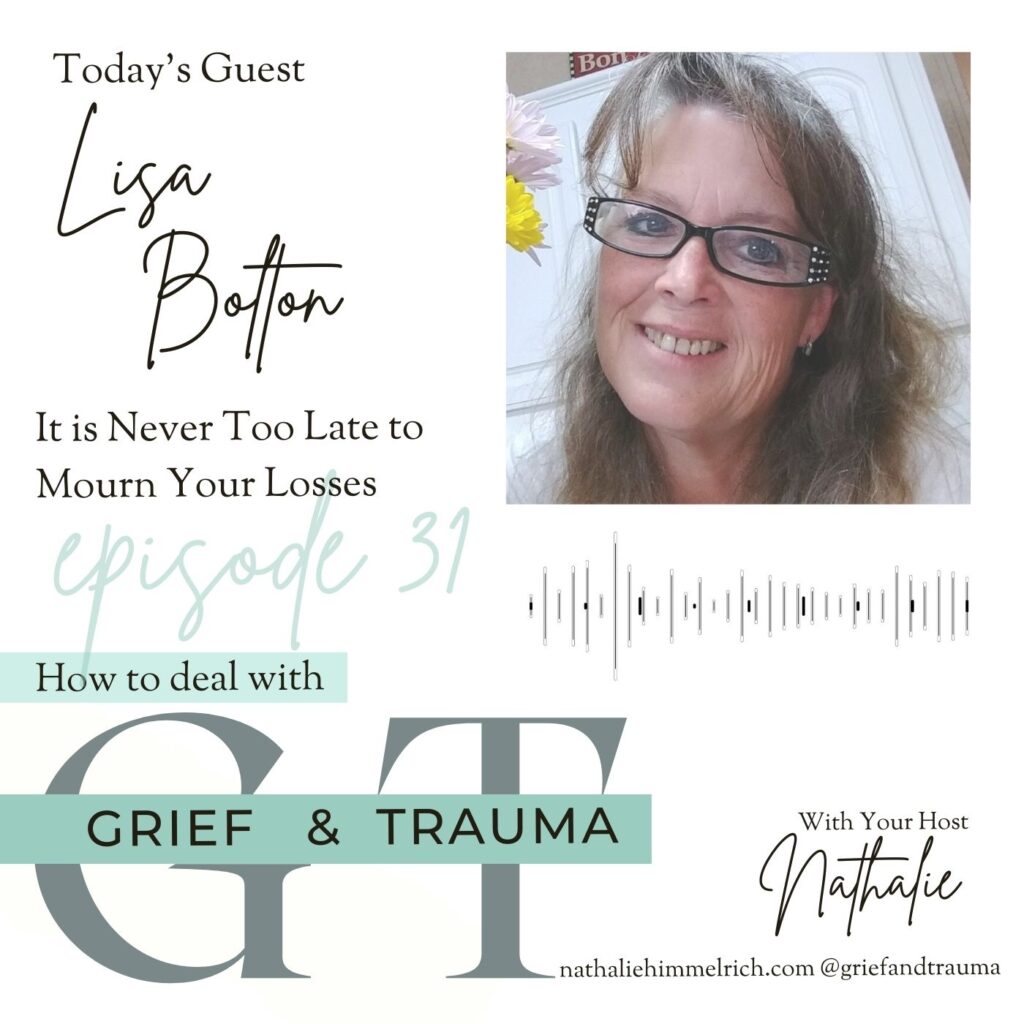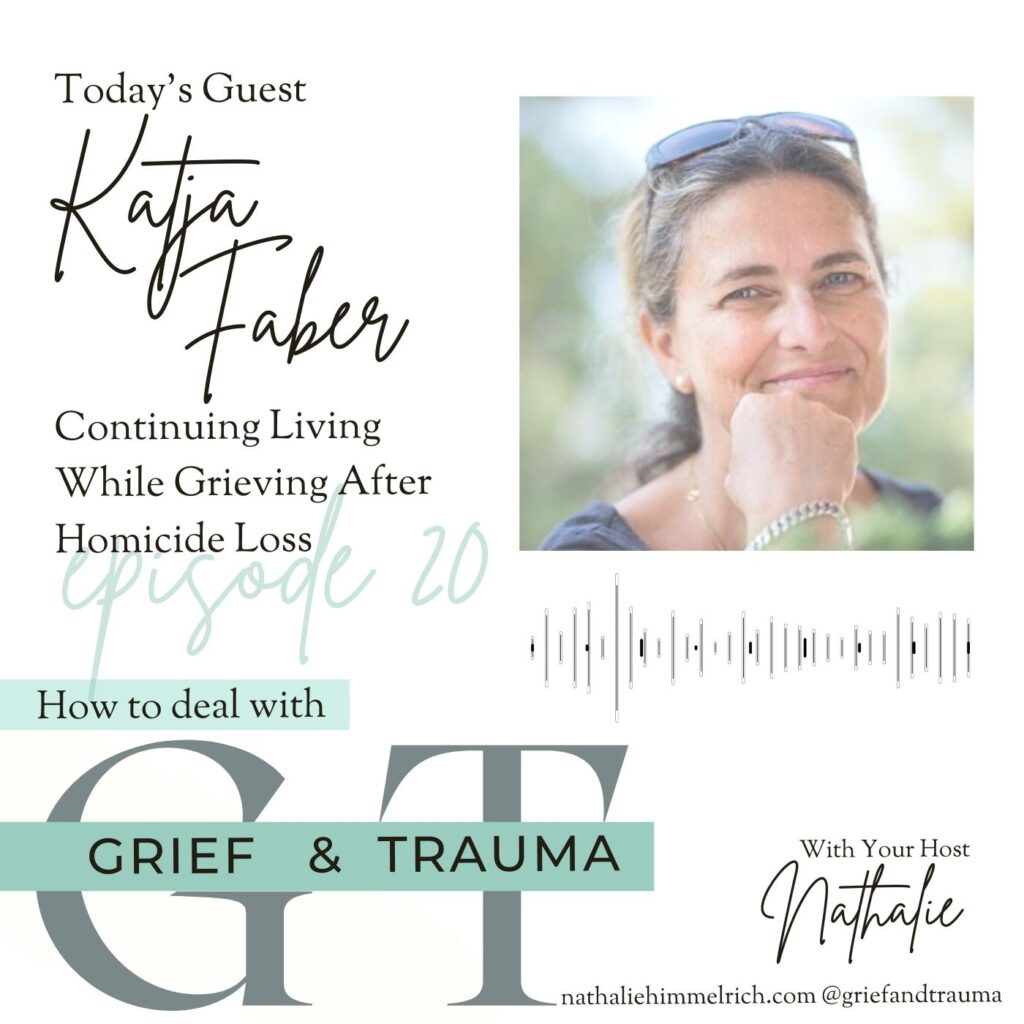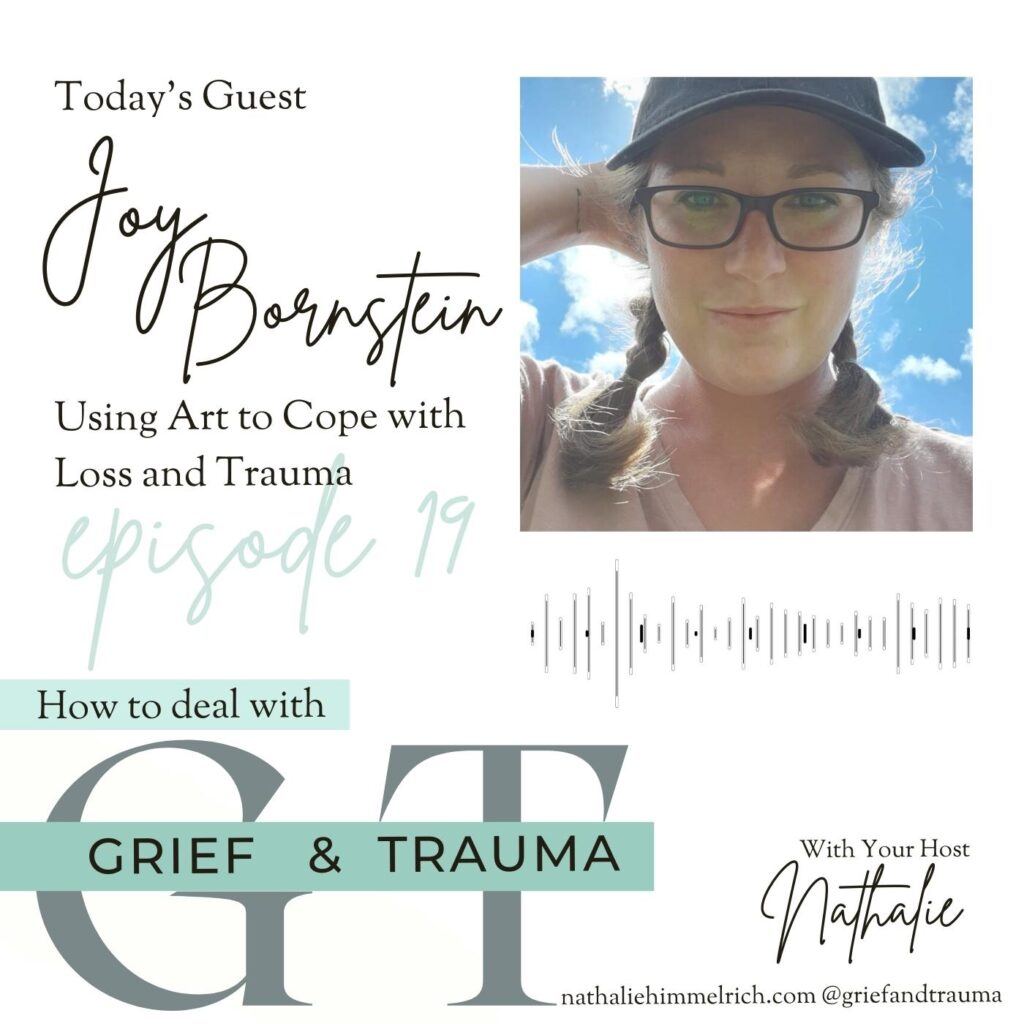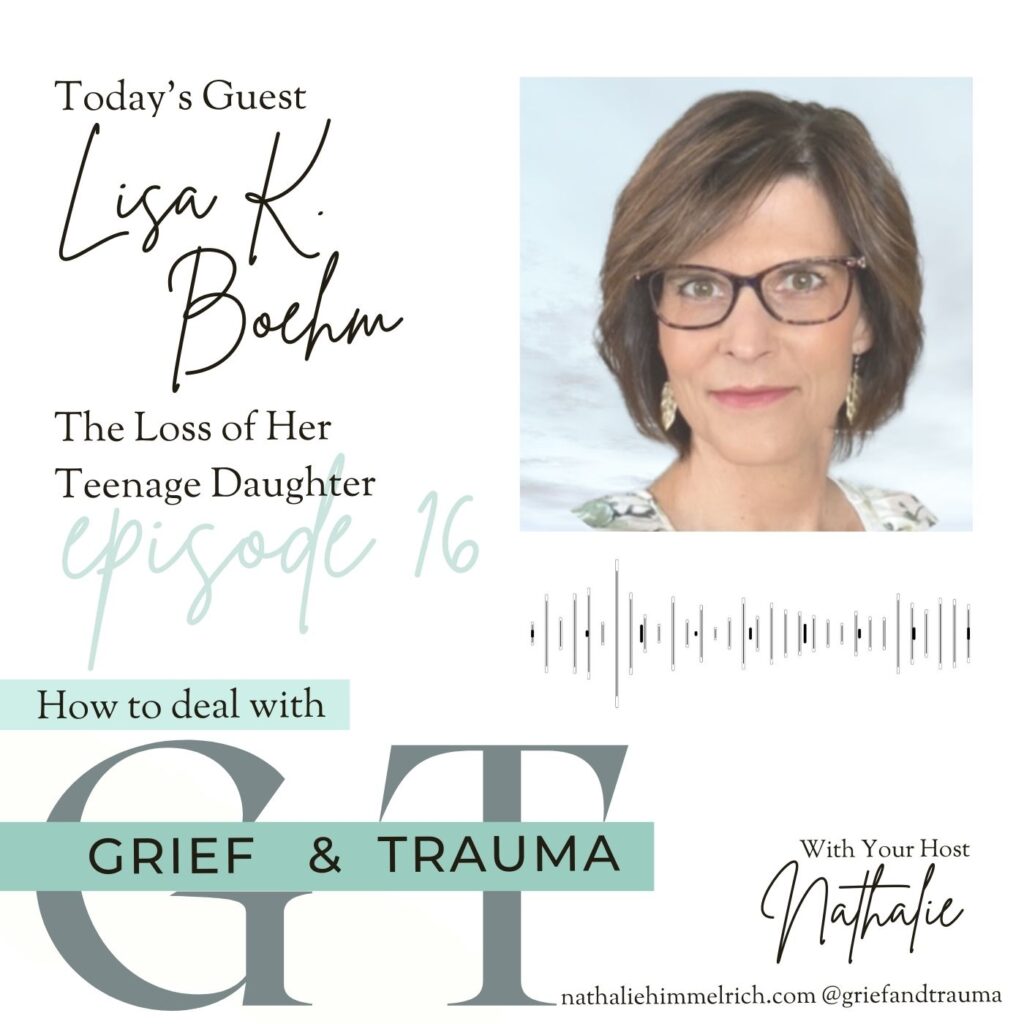HOW TO DEAL WITH GRIEF AND TRAUMA is completely self, funded, produced, and edited by me, Nathalie Himmelrich.
Consider making a small donation to support the Podcast: bit.ly/SupportGTPodcast. Thank you!
For more information, please visit Nathalie’s website, join the podcast’s Instagram page, and subscribe to the newsletter to receive updates on future episodes here.
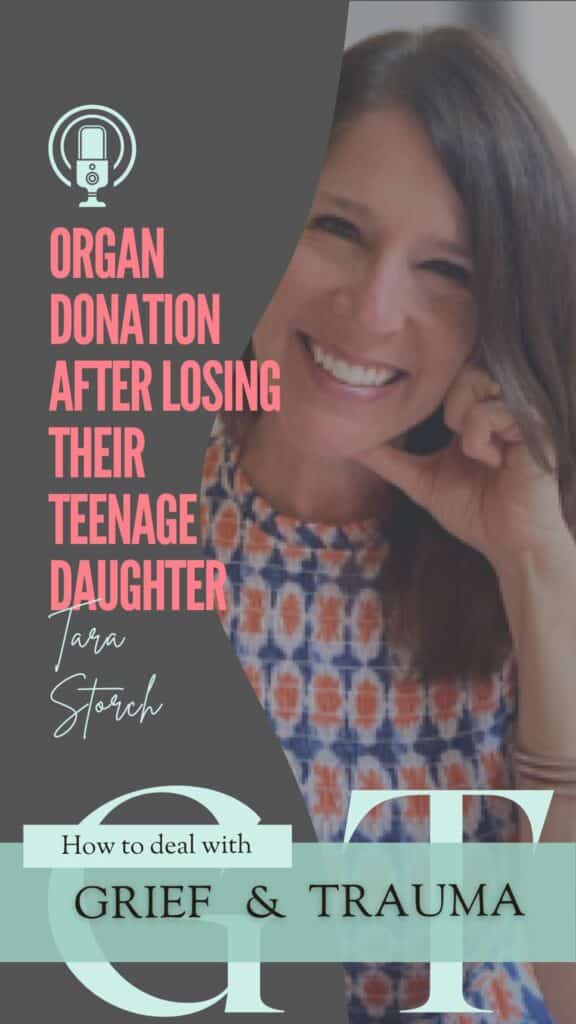
Today I’m speaking with Tara, Taylor’s mum. Taylor died following a skiing accident when she was just a teenager. In the hospital when Taylor’s parents were met with the fact that she would not be able to survive, they were offered the option of organ donation, which surprisingly was one of the easier decisions the parents to make. Tara talks about how she and her husband both grieved the loss of their daughter in very different ways and how talking to another couple who experienced a similar loss helped them. After their loss, they made it their mission to focus on the good. Part of that was that Taylor had saved multiple lives through organ donation, so the parents started Taylor’s Gift Foundation to change the conversation around the topic and to support donor families.
About this week’s guest
Tara Storch is president and co-founder of Taylor’s Gift Foundation and is a marketing professional, award-winning author, and community leader. Tara and her husband Todd co-authored the award-winning book, Taylor’s Gift, which was recognized as the ‘Most Inspirational Book’ at the Books for A Better Life Awards in New York City. She and her husband were also recognized as “Heroes Among Us” by People Magazine.
Opening up about her journey of finding hope and purpose after the loss of their daughter Taylor, she speaks publicly across the nation about her powerful “Outlive Yourself” message. Sharing her journey on Good Morning America, The Today Show, The Ellen Show, People Magazine, and other national and international media, she brings a message of inspiration that touches lives worldwide. Tara is the proud mother to three children – Taylor, Ryan, and Peyton. She and her husband, Todd currently live in the Dallas, Texas area.
Tara’s links:
- IG @taylorsgiftfoundation
- IG @tarastorch
- Facebook: https://www.facebook.com/taylorsgift
- FAQ’s about organ donation
Other episodes mentioned in this episode:
Thank you for listening!
HOW TO DEAL WITH GRIEF AND TRAUMA is produced and edited by me, Nathalie Himmelrich. Support the show
Support the show:
- Become a supporter of the show! Starting at $3/month
- Join Facebook Group – Grief and Trauma Support Network
- Download the FREE grief resource eBook
- Book a complimentary Discovery Call
- Leave a review
Follow on socials:
